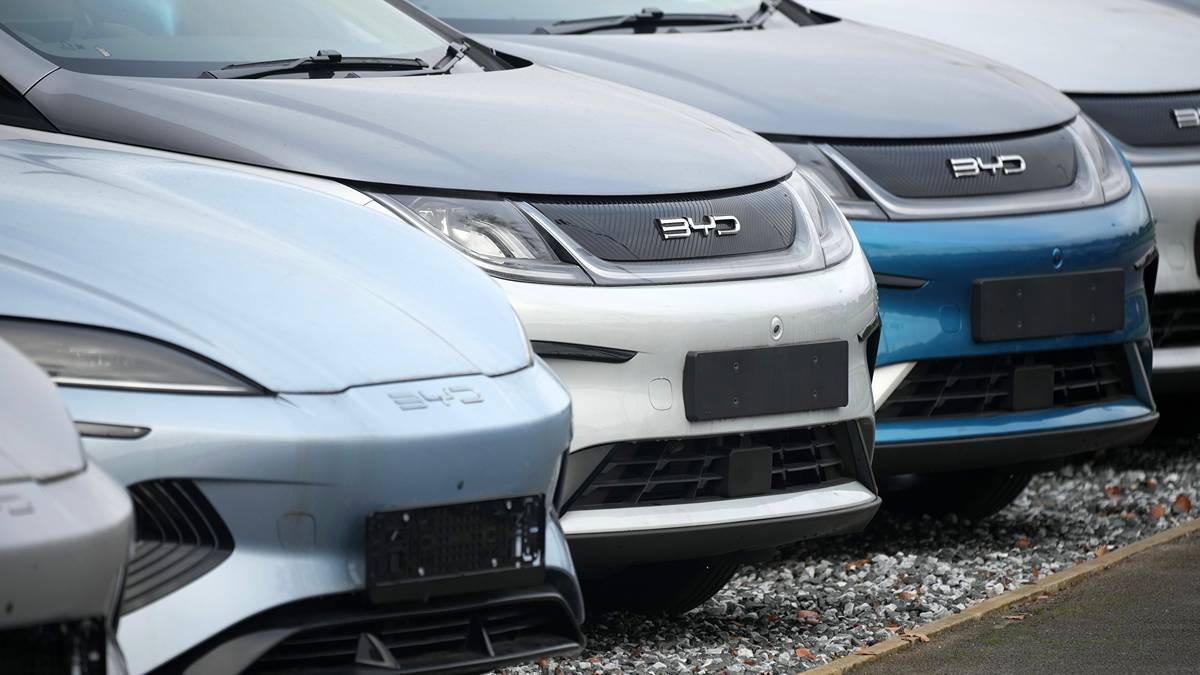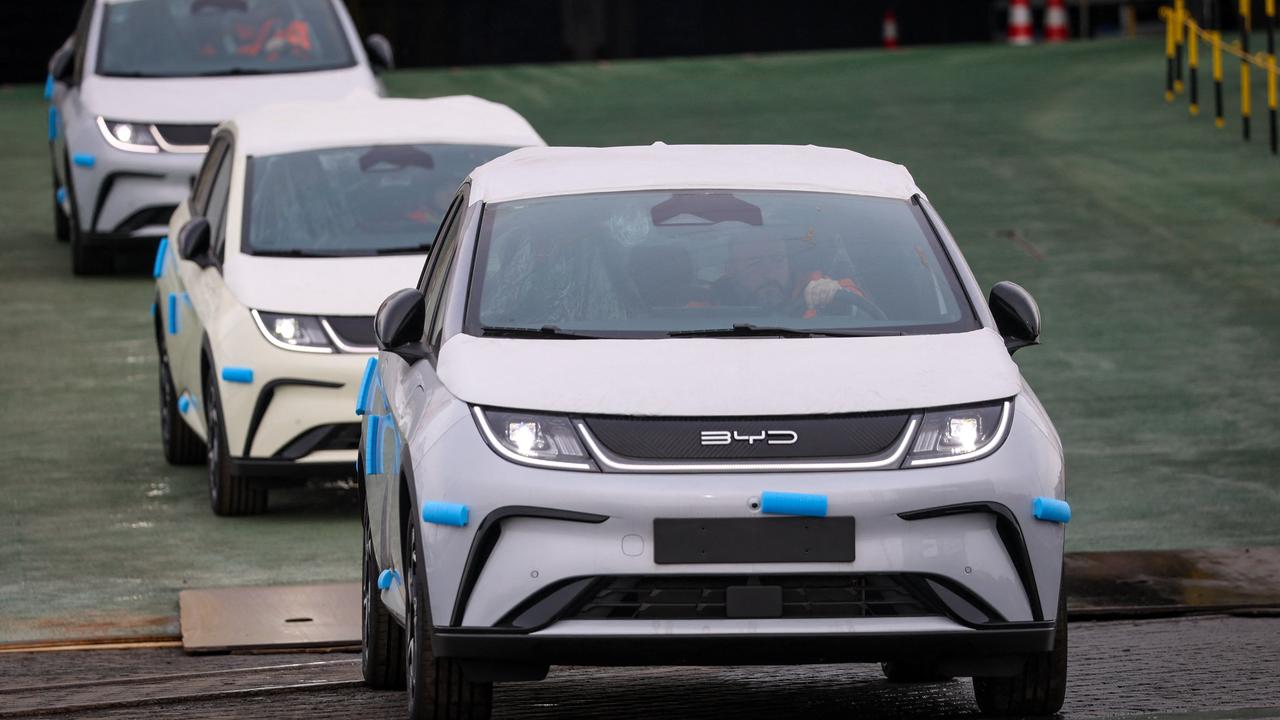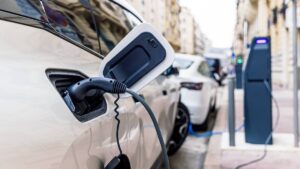Move over Tesla, China’s BYD is Australia’s ‘preferred’ electric vehicle brand

Pic via Getty Images

Chinese electric vehicles are gaining traction in Australia but overall interest in EVs has dropped, new data suggests.
Chinese manufacturer BYD, which entered the market from Shenzhen, near Hong Kong, in 2022, has become one of the most popular brands and the most commonly considered vehicle among prospective EV buyers.
BYD has even outshone Tesla, with the data suggesting customers might be swayed by its cheaper prices, which begin at $38,890 for its Dolphin model, a compact electric hatchback the company claims is the nation’s most affordable EV.
Tesla’s lowest-cost option is about $20,000 more, with the Tesla Model 3 retailing for $54,900 plus on-road costs.
Carsales data service director Ross Booth said that “price remains a key barrier to EV adoption”.
Mr Booth said the price of petrol vehicles had risen 20 per cent since 2021, while EV prices had decreased by about 9 per cent, or about $3000 on average.
“Competition in the EV market is also increasing, and with up to 12 new Chinese car brands set to enter the country, many of which will focus on EVs, prices will likely drop further in the upcoming years,” he said.
Electric vehicle owners also appear less loyal, with the number of EV owners keen on purchasing another EV dropping 12 per cent from 95 per cent in May last year to 83 per cent.
Carsales found key differences across generations, with Gen X the most likely to have considered buying an EV.
Baby boomers tended to believe what Carsales described as “popular misconceptions” about the time needed to charge EVs and a lack of charging stations.
Just shy of two-thirds – or 62 per cent – of baby boomers surveyed were concerned about how far they could travel in an EV, while 53 per cent were concerned about the depreciation of EVs over time.
Meanwhile almost half of Gen Z respondents – those born between 1996 and 2010 – believed EVs were too quiet.
One-third of Gen Z believed EVs were not safe, while a similar number – 33 per cent – were concerned about the look of the cars. The data found Gen Z had a “strong connection to ICE vehicles” and that just 22 per cent – the lowest of all generations – had considered buying an EV.
Among the reasons EV owners had switched from ICE vehicles was performance.
There were also changes to the types of EVs being bought, with SUVs, once the preferred choice of almost half of buyers, dropping in popularity to about one third. Utes had increased in popularity – now the preferred choice of 15 per cent of respondents, compared to just 4 per cent last year.
This article first appeared in The Australian.
Related Topics
UNLOCK INSIGHTS
Discover the untold stories of emerging ASX stocks.
Daily news and expert analysis, it's free to subscribe.
By proceeding, you confirm you understand that we handle personal information in accordance with our Privacy Policy.








